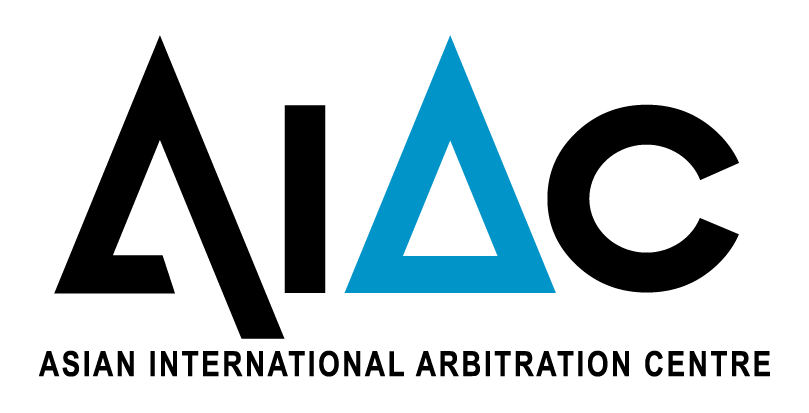ARTICLE
November 21, 2017
Arbitration Case Law: Summary of [2015] SGHC 49 - Enforcement of SIAC award made by an emergency arbitrator
AQZ ("AQZ", "Appellant") v ARA ("ARA", "Defendant")
Court High Court of Singapore
Case Citation [2015] SGHC 49
FACTS
A dispute between AQZ and ARA arose out of the contract for the sale and purchase of Indonesian non-coking coal. The Singapore-incorporated supplier (“the Supplier” or “the Applicant”) and the Singaporean subsidiary of an Indian trading and shipping conglomerate (“the Buyer” or “the Respondent”) discussed the possibility of entering into two separate sale and purchase agreements. The First Shipment Contract for 50,000 metric tons of coal was signed on 9 December 2009, while the conclusion of the Second Shipment Contract was disputed by the Supplier. The Buyer insisted on the validity of the Second Shipment Contract and claimed non-performance of contractual obligations by issuing a Notice of Arbitration on 20 March 2013. Furthermore, regardless of the explicit agreement of the parties to refer disputes to a panel of three arbitrators in Clause 16 of the First Shipment Contract, the Buyer applied for the arbitration to be conducted under the Expedited Procedure which implies an arbitration before a sole arbitrator[1]. On 8th July 2013, the SIAC President appointed an arbitrator who subsequently found that the tribunal had jurisdiction and that the Supplier was liable to the Buyer for the breach of the contract. On 11 June 2014, the Supplier took these proceedings to the High Court of Singapore to have the Award reversed and/or wholly set aside on grounds that the arbitrator lacked jurisdiction to hear the dispute, in particular: (a) there was no binding arbitration agreement; (b) a dispute was resolved by a sole arbitrator instead of a panel of three arbitrators. Alternatively, the Supplier sought for the dispute to be reheard before three arbitrators if the court found that there was a valid arbitration agreement.
ISSUES
(i) Whether, in view of the fact that the Arbitrator’s decision to hear the dispute contained in an award which also deals with the merits of the dispute, the Supplier can apply for relief under s10(3) of the International Arbitration Act of Singapore (“IAA”) and/or Article 16(3) of the Model Law;
(ii) Whether the Arbitrator’s decision on jurisdiction can be impeached under Art 34(2)(a)(i) of the Model Law in that there was no valid arbitration agreement;
(iii) Whether an Award can be set aside under Art 34(2)(a)(iv) in that the composition of the arbitral tribunal (ie, the appointment of the sole arbitrator instead of three arbitrators) or the arbitral procedure (ie, the Expedited Procedure) was not in accordance with the agreement of the parties.
HELD
The Supplier’s first prayer for relief was dismissed. As concluded by Justice Prakash, “it should be apparent that relief under Art 16(3) is not available when a party seeks to set aside a ruling which us predominantly on jurisdiction but also marginally deals with the merits because that is simply not the purpose that the drafters intended Art 16(3) to serve.”[2] Also, the power of arbitral tribunal to rule on a plea that it has no jurisdiction “at any stage of arbitral proceedings”[3] was explained: this power “deals with the issue of when such a determination can be made rather than the question of the form that the tribunal’s ruling is to take.”[4]
On the second issue, it was held that a valid and binding contract for the Second Shipment was formed on 8 December 2009 and the current IIA governs the issue of the validity of the arbitration agreement. Furthermore, there was a valid arbitration agreement that satisfied the requirements set out in s 2A(4) of the IAA. The fact that the Buyer did not sign either draft of the Second Shipment contract does not amount to its disagreement with the terms of the arbitration clause which was identical to the Clause 16 of the First Shipment contract.[5] Therefore, the second relief to set aside the Award on grounds of invalidity of an arbitration agreement was dismissed.
Finally, on the basis of the presumption that reference to rules of a particular tribunal in an arbitration clause refers to such rules as are applicable at the date of commencement of arbitration and taking into account that the Applicant did not contend that the SIAC Rules contain mainly substantive provisions, the court found that the SIAC Rules 2010 are applicable to the dispute. Moreover, as Rule 5 of the SIAC Rules 2010 provides for arbitration to be conducted under the Expedited Procedure if the SIAC President agrees that this procedure should be used, “it cannot be said that the procedure that was followed was not in accordance with the Parties’ agreement.”[6] Interestingly, Justice Prakash mentioned “that “express assent”… is not necessary for the Expedited Procedure provision to override the parties’ agreement for arbitration before three arbitrators even though the version of the SIAC Rules that was in force at the time the parties entered into the contract did not contain the Expedited Procedure provision.”[7] A distinction has been made with the ICC’s emergency arbitrators provisions which expressly state that they do not apply in the context of arbitration agreements that were entered into force before the new ICC Rules came into force. Therefore, the Justice concluded that there was no ground to set aside the Award based on Art 34(2)(a)(iv) of the Model Law.
[1] Rule 5, SIAC Rules 2010.
[2] Para. 69, AQZ v ARA [2015] SGHC 49.
[3] Section 10(2) of the International Arbitration Act of Singapore.
[4] Para. 70, AQZ v ARA [2015] SGHC 49.
[5] Para. 120, AQZ v ARA [2015] SGHC 49.
[6] Para. 127, AQZ v ARA [2015] SGHC 49.
[7] Para. 132, AQZ v ARA [2015] SGHC 49.
